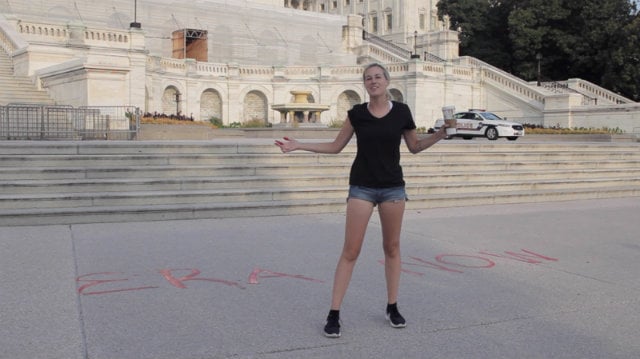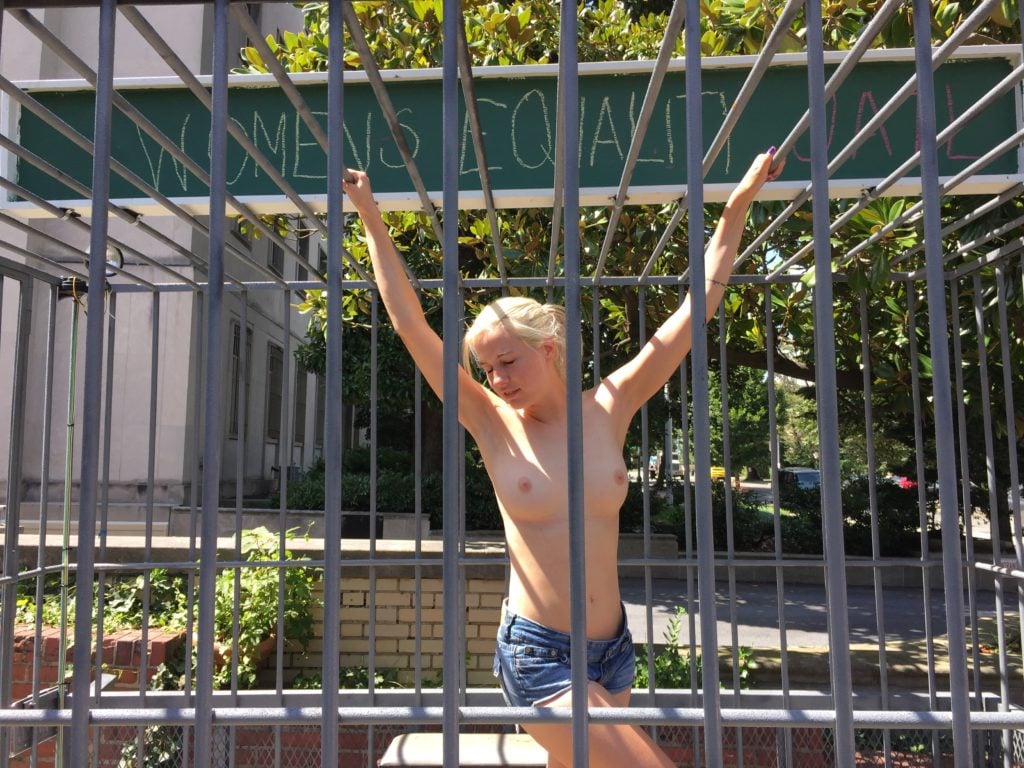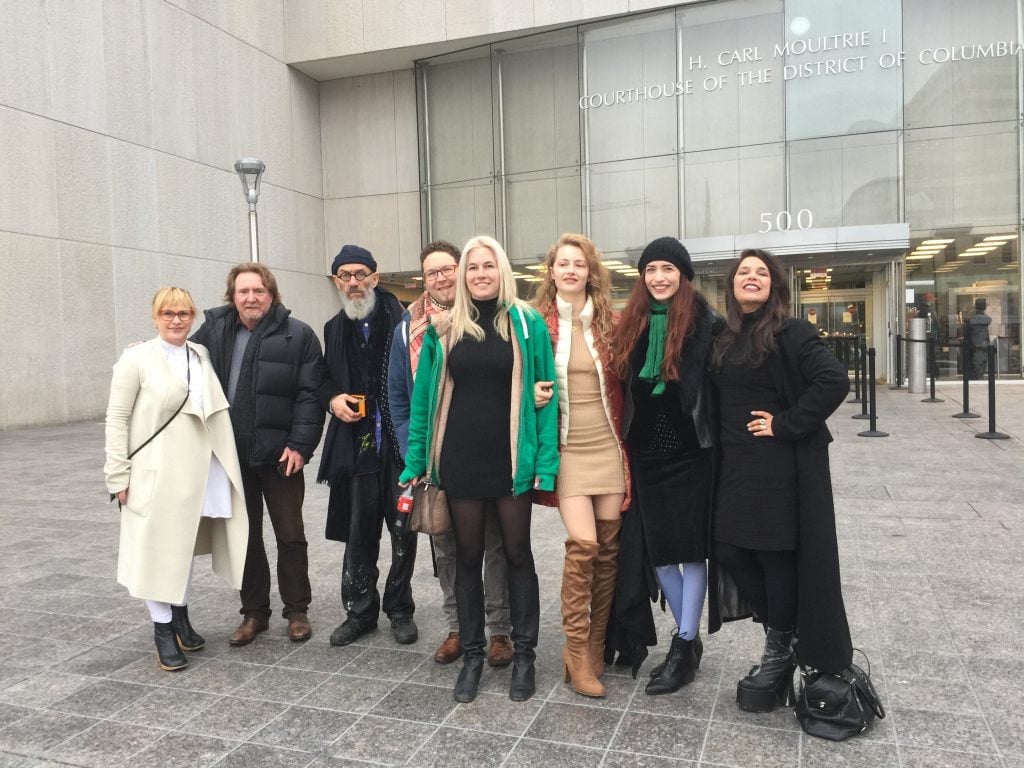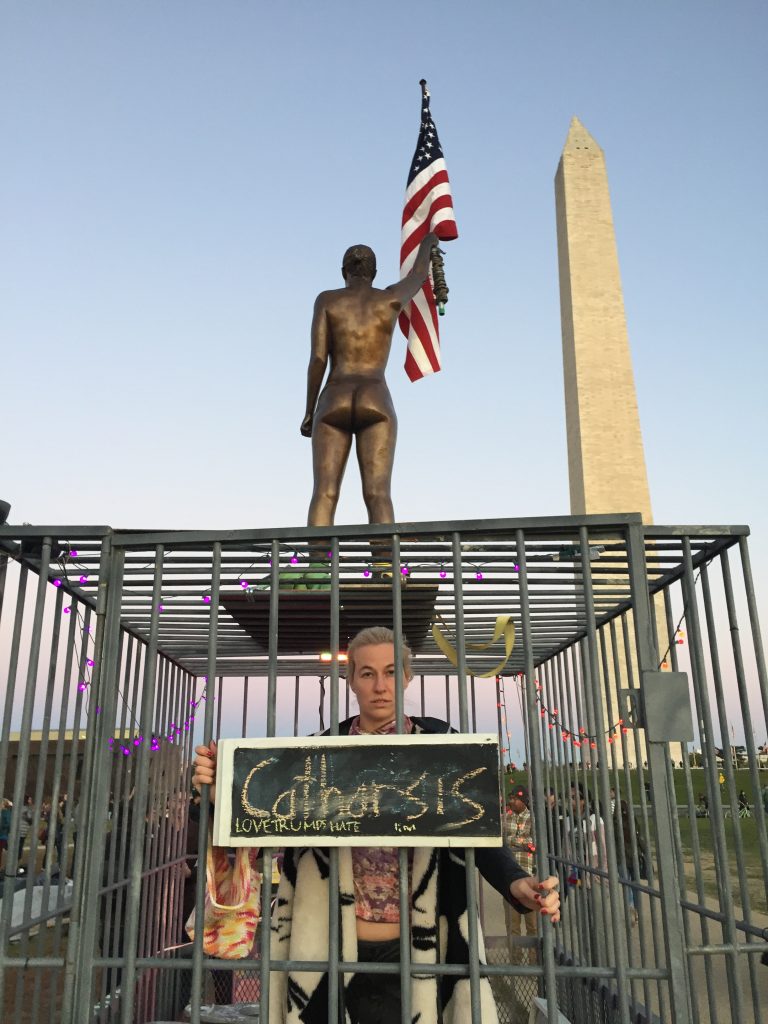Law & Politics
Artist Natalie White Found Guilty of Defacing Property for Painting In Front of Capitol Building
She turned the trial into performance art.

She turned the trial into performance art.

Sarah Cascone

As people prepared for the international Women’s March on January 20, artist Natalie White was in District of Columbia court.
She was found guilty of defacing public/private property for painting “ERA NOW” on the pavement outside the Capitol Building last summer.
White chose to represent herself, turning the trial, which ran January 17 and 18, into a work of art, titled United States v. Natalie White: a performance piece on female self-representation in D.C. criminal court.
The artist wasn’t completely on her own in the courtroom, however, as attorney Mark Goldstone was there to help her question witnesses. Prominent civil rights lawyer Ronald Kuby, a veteran of numerous cases involving artist protests and public nudity, served as her pre-trial advisor.

Natalie White after writing “ERA NOW” on the pavement in front of the US Capitol. Courtesy of Sheila Maria Lobo, from the upcoming documentary NSFW: Not Suitable for Women.
“Since part of this art project is restoring the voice of women, having some old white guy talk for her doesn’t really sound congruent with her message,” Kuby explained to artnet News following White’s arrest.
The graffiti was part of White’s crusade to secure the passage of the proposed Equal Rights Amendment, which would make discriminating against women on the basis of their gender illegal. Although Congress passed the ERA in 1972, it has never been ratified.
On July 8, White began a 250-mile Equal Rights Amendment (ERA) march from New York to Washington. Upon her arrival, she took her water-soluble message to lawmakers. The artist turned herself into police in August, and spent some 14 hours in jail before being released.
Her other projects have included sitting topless on top of an American flag at Lower East Side gallery The Hole, for a 2015 exhibition.

Natalie White in “Women’s Equality Jail.” Courtesy of Natalie White for Equal Rights.
“I’ve never defaced property before in my life,” White told Judge Robert Salerno, insisting that the painted message was a mean of exercising her First Amendment rights and calling “attention in a non-violent way to the unequal treatment of 51 percent of the population.”
Celebrities have come to the artist’s aid for the trial. White used “kid’s craft paint that was washed off with a bucket,” said actress Patricia Arquette, a character witness for White during the case, in a video filmed by the artist. “That’s nowhere near as permanent as women not having equal rights for 240 years.”

Outside the courthouse: Patricia Arquette, Ron Baldwin, activist and philanthropy consultant; Tony Kaye, director of American History X; Adam Eidinger, activist; Natalie White; Sarabeth Stroller, “Free the Nipple” founder; Lizzy Jagger, activist and model; Kamala Lopez, director of the film Equal Means Equal.
Lizzy Jagger, daughter of Rolling Stones star Mick Jagger, also testified on White’s behalf.
The prosecution pushed for the judge to sentence White to 40 hours of community service and $250 fine, and to ban her from visiting the Capitol building for six months. White argued that her ongoing efforts to get the ERA passed should count as community service, and that she has the right to meet with lawmakers and their staff.

Natalie White in “Women’s Equality Jail” on the Washington Mall, with her statue Sister of Liberty at Catharthis on the Mall in November 2016. Courtesy of Natalie White for Equal Rights.
The judge agreed that no additional community service was needed, and that, in the event of an official appointment, White can meet with lawmakers at the Capitol. In lieu of a fine, White has to make donation of at least $50 to the victim’s compensation fund.
Following the court’s verdict, the artist took to the streets, joining the Women’s March on Washington.